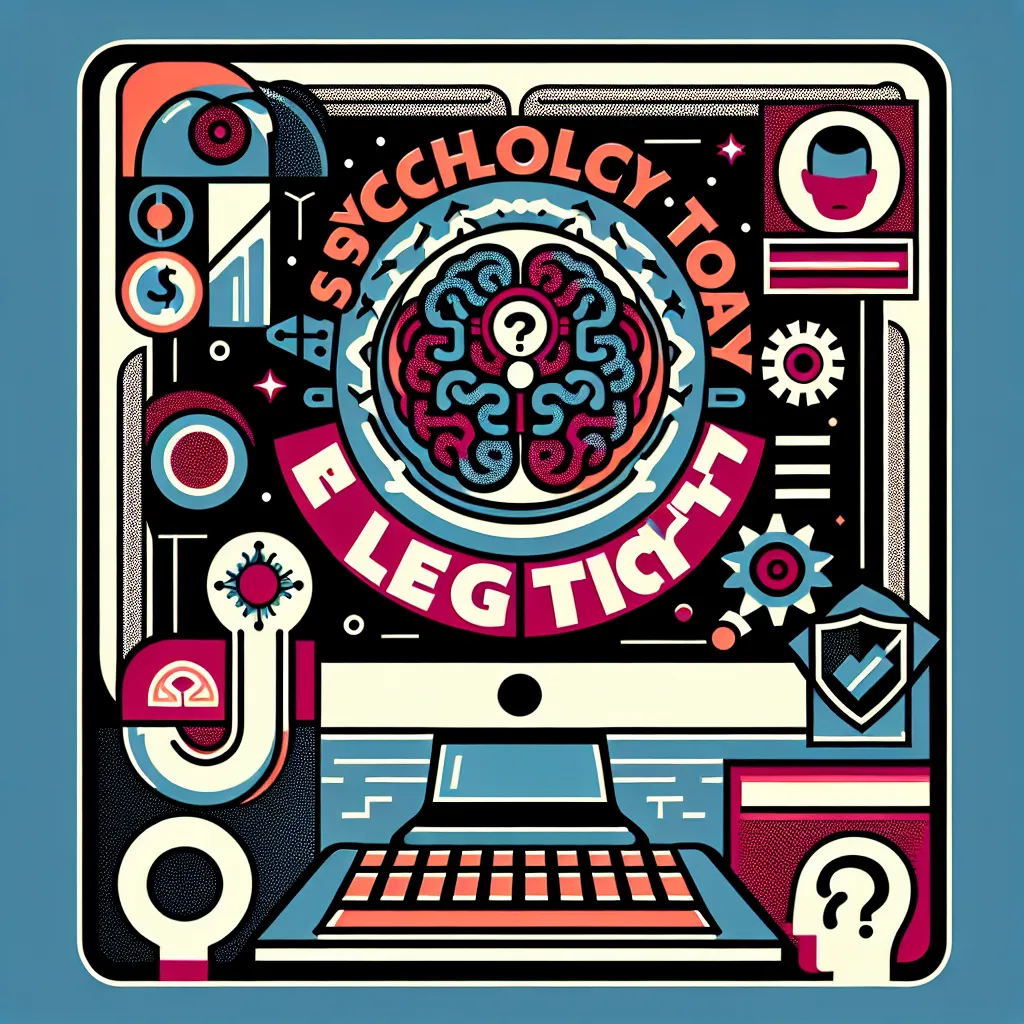Is Psychologytoday.com Legit: A Critical Analysis of Their IQ Test
The digital age has brought about a proliferation of online IQ tests, allowing individuals to gauge their intellectual capabilities from the comfort of their own homes. Among the numerous platforms offering these services, PsychologyToday.com stands out due to its recognizable brand and established presence in the mental health arena. However, when it comes to the legitimacy and accuracy of their IQ test, it’s essential to tread carefully. This article delves deep into whether the IQ test offered by PsychologyToday.com stands up to scrutiny or falls short of the mark.
If you are looking for legitimate IQ Tests which pass the entry bar for Mensa, see our [IQ Tests](https://cognitivetesting.co).
### The Importance of G-Factor Studies
One key component of any legitimate IQ test is its basis in g-factor theory. The g-factor, or general intelligence factor, is a concept introduced by Charles Spearman, which posits that cognitive abilities are correlated and reflect a common underlying factor. High-quality, scientifically-validated IQ tests, such as the Wechsler Adult Intelligence Scale (WAIS) or the Stanford-Binet Intelligence Scales, build their frameworks around g-factor studies.
Unfortunately, PsychologyToday.com does not prominently display any information regarding the g-factor underpinning their IQ test. The absence of this crucial data implies that the test might lack the rigorous scientific basis that lends credibility to more established IQ tests. Without a transparent connection to g-factor theory, the IQ test could be measuring isolated skills rather than offering a holistic assessment of intellectual capabilities. For individuals seeking legitimate and comprehensive intelligence evaluations, this omission is a significant red flag.
### The Elusive Norming Data
Another cornerstone of reputable IQ tests is the presence of norming data – statistically reliable benchmarks that allow for accurate comparison among test-takers. Norming data typically includes a large, representative sample of the population, ensuring that the scores are both reliable and valid. This data helps interpret IQ scores in context, indicating how an individual’s performance compares to the general population.
PsychologyToday.com, however, fails to provide accessible norming data for its IQ test. The lack of transparency regarding the population sample, the methodology used, and the resulting benchmarks means that the test’s reliability and validity are in question. Without this essential data, interpreting one’s IQ score becomes problematic, as there are no clear standards against which to measure performance. Consequently, users are left in the dark about the accuracy and significance of their results.
### Negative Reviews: A Cause for Concern
In the world of online consumer feedback, reviews serve as a critical barometer of a product’s efficacy and reliability. The PsychologyToday.com IQ test has garnered a fair share of negative reviews on various platforms, casting doubts on its credibility.
Many users have reported discrepancies in scoring, questioning the consistency and reliability of the test. For instance, some individuals have taken the test multiple times and received divergent scores, indicating potential flaws in the test’s design and scoring algorithm. Others have highlighted the oversimplified nature of the questions, arguing that they do not adequately capture the complexity of human intelligence.
Moreover, technical issues such as unexpected errors during the test, difficulties in accessing results, and a lack of responsive customer support have further tarnished the test’s reputation. These recurring negative reviews amplify the skepticism surrounding the test’s legitimacy and reliability, suggesting that it may not be a trustworthy tool for assessing intelligence.
### The Professional vs. Online IQ Test Divide
It’s essential to understand the fundamental differences between standard, professionally administered IQ tests and their online counterparts. Professionally administered IQ tests, such as the WAIS or Stanford-Binet, involve a stringent, controlled environment where trained psychologists or qualified professionals meticulously oversee the testing process. These tests undergo extensive research, rigorous validation procedures, and continuous updates to maintain their credibility and accuracy.
In contrast, online IQ tests, including the one offered by PsychologyToday.com, often lack the depth and oversight found in professionally administered tests. These online tests can be a convenient tool for those curious about their cognitive abilities but are unlikely to meet the rigorous standards required for high-stakes decisions, such as diagnosing intellectual disabilities or qualifying for Mensa membership.
### The Verdict: Caution Advised
Given the absence of g-factor studies, omitting easily accessible norming data, and the prevalence of negative reviews, it becomes evident that the IQ test on PsychologyToday.com is fraught with inconsistencies and potential inaccuracies. While it may offer a general sense of cognitive ability, it falls short of providing a robust, scientifically validated measure of intelligence.
For individuals seeking a precise and reliable IQ assessment, it is advisable to consider alternatives. Opting for professionally administered IQ tests that are grounded in g-factor theory and supported by comprehensive norming data ensures a more accurate and trustworthy evaluation. Moreover, consulting with trained professionals who can interpret and contextualize the results further enhances the value of the assessment.
In conclusion, while the convenience of online IQ tests is appealing, it is crucial to approach them with a healthy dose of skepticism. The IQ test offered by PsychologyToday.com, despite its association with a reputable brand, lacks the essential components that define a legitimate and reliable intelligence assessment. Individuals serious about understanding their intellectual capabilities should prioritize tests with established scientific rigor and professional oversight over the convenience of online alternatives.



Leave a Comment